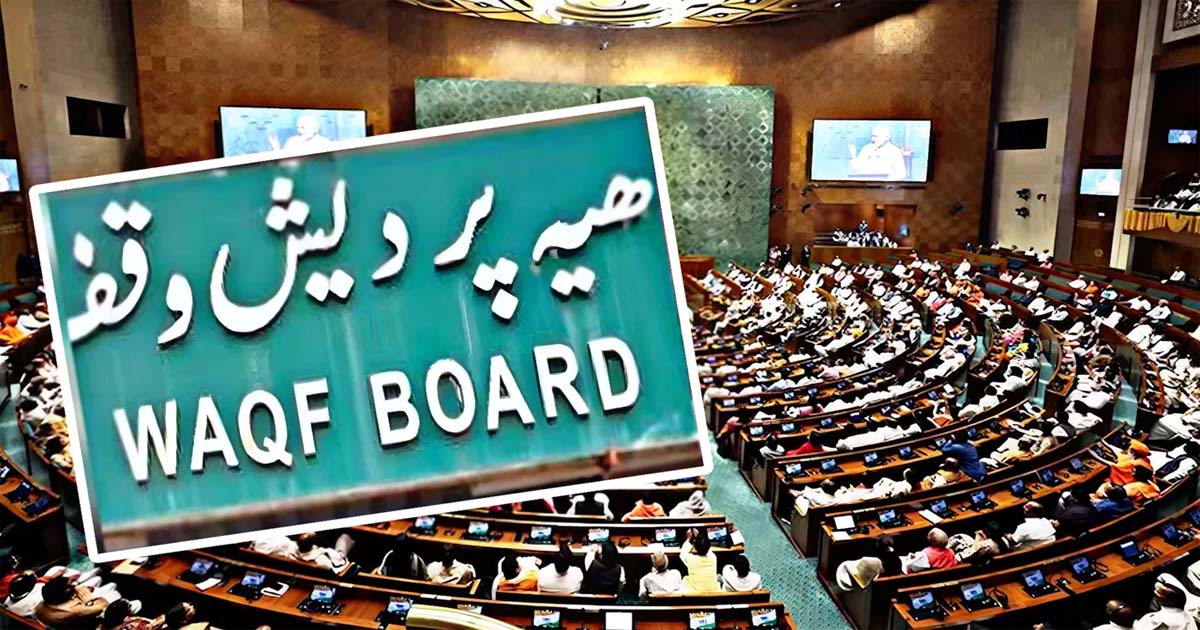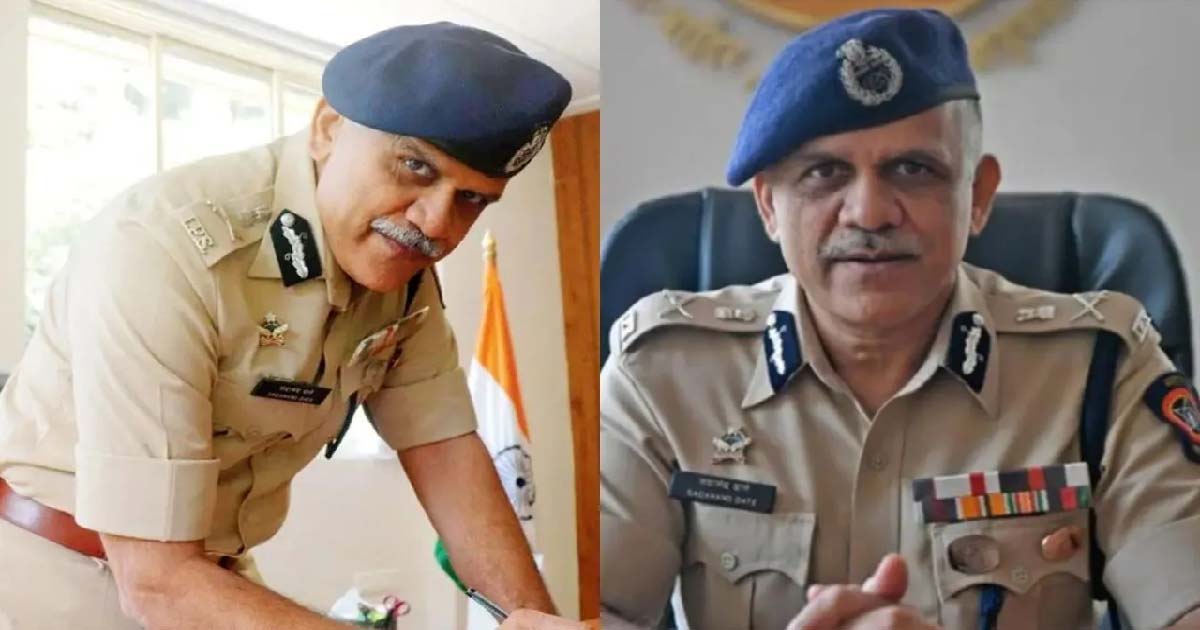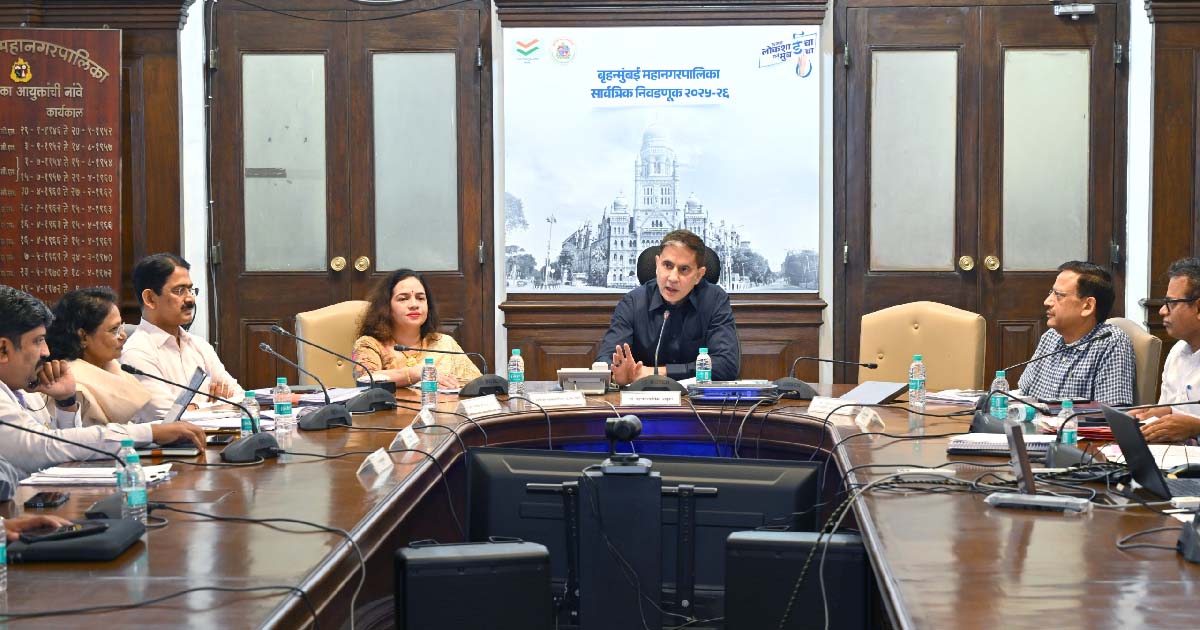Mumbai Press Exclusive News
Is the New Waqf Bill Beneficial for the Muslim Community? Report: Qamar Ansari

The recently introduced Waqf Bill by the government has once again sparked debate within the Muslim community. The bill is being presented as a step towards better management, transparency, and protection of Waqf properties across the country. However, differing opinions have emerged over whether it truly serves the interests of the Muslim community.
The new bill includes several key provisions, such as enhancing the powers of Waqf Boards, introducing a digital registry of Waqf properties, and initiating strict action against illegal encroachments. The government claims that the bill will ensure the protection of Waqf assets and that the revenue generated from them can be effectively used for education, healthcare, and welfare projects.
However, some religious and social organizations have expressed concerns. They argue that Waqf properties are inherently linked to religious purposes, and direct government interference could compromise religious autonomy. Some fear that the bill may hinder the freedom and original purpose of Waqf properties.
On the other hand, legal experts and reformist voices believe that if implemented honestly, the bill could be a positive step for the Muslim community. With better administration of Waqf assets—many of which have been mismanaged or encroached upon—the community could benefit in significant ways.
What’s the Difference Between the Old and the New Waqf Bill?
Old Waqf Law:
The earlier Waqf law, enacted under the “Waqf Act 1995,” aimed to regulate and safeguard thousands of Waqf properties across India. Key features included:
- Establishment of State Waqf Boards.
- Responsibility for property management vested in the Boards.
- Mandatory registration of Waqf properties.
- Appointment of Mutawallis (caretakers) with board approval.
Over time, however, the law revealed weaknesses in its implementation. Problems such as illegal encroachments, corruption, and ineffective oversight continued to rise.
New Waqf Bill:
The new Waqf Bill introduces several major changes, aiming to modernize the system, enhance transparency, and incorporate technology. Key provisions include:
- Digital Registry: All Waqf properties to be registered and monitored online.
- Central Database: A national Waqf portal to provide public access to information.
- Action Against Encroachments: Legal powers to swiftly remove illegal occupants.
- Administrative Transparency: Stronger audit mechanisms and transparent functioning of Waqf Boards.
- Grievance Redressal System: A responsive complaint cell to address corruption and misuse.
Summary of Differences:
| Aspect | Waqf Act 1995 (Old Law) | Waqf Bill 2025 (New Bill) |
|---|---|---|
| Registration | Manual registry | Digital registry with a national portal |
| Oversight | State-level monitoring | Centralized oversight and national database |
| Transparency | Limited | Enhanced transparency and robust auditing system |
| Action Against Encroachment | Lengthy legal process | Swift legal action provision |
| Public Participation | Weak grievance mechanism | Active grievance redressal system |
The use of modern technology, improved transparency, and administrative reforms in the new Waqf Bill are promising aspects. However, some scholars and religious groups worry that increasing government involvement may infringe upon religious autonomy. The actual impact of the bill will largely depend on its execution and the extent to which the Muslim community is consulted and included in the process.
For now, it remains too early to say whether the bill will prove to be entirely beneficial for the Muslim community. Its success hinges on fair implementation and inclusive governance.
Maharashtra
Sadanand Data’s path to becoming DGP is paved, Data will succeed Rashmi Shukla in Maharashtra, will take charge from January 1

NIA Chief Sadanand Date: The Appointments Committee of the Cabinet (ACC) of the Central Government has taken a significant administrative decision, approving the immediate repatriation of National Investigation Agency (NIA) Director General and senior IPS officer Sadanand Vasant Date to his parent cadre in Maharashtra. This order, issued on December 22nd, is considered highly significant from both an administrative and political perspective.
Sadanand Date is a 1990 batch IPS officer and is known as a strict, honest, and experienced officer at both the central and state levels. During his tenure as NIA chief, the agency’s role in several sensitive and national security-related cases was further strengthened. Under his leadership, the NIA’s efficiency and credibility have increased.
This decision comes at a time when elections for the Brihanmumbai Municipal Corporation (BMC) are scheduled for January. The BMC is one of the largest municipal corporations in the country, and maintaining law and order during its elections is a major challenge for the state police. Therefore, experienced leadership at both the central and state levels is considered crucial.
The term of the current Director General of Police (DGP) of Maharashtra, Rashmi Shukla, ends on December 31st. In this context, Sadanand Date’s name is being considered as a frontrunner for the next DGP of the state. According to administrative sources, Date’s appointment could ensure a fair and robust security arrangement during the elections.
Sadanand Date is known as the courageous officer who directly confronted terrorist Ajmal Kasab at the Cama and Albless Hospital during the 26/11 Mumbai terror attacks. He was seriously injured during the incident, but his courage and dedication to duty earned him national recognition.
If Sadanand Date is appointed as the new DGP of Maharashtra, it will be considered a major and positive step for the state’s law and order and security apparatus. Administrative circles believe that his appointment will boost the morale of the police force and help in conducting the upcoming elections peacefully.
Maharashtra
Mumbai: Rickshaw driver beaten up in Vikhroli on suspicion of child theft, burqa-clad driver did this to collect fare, police claim

Mumbai: Vikhroli Park Site, after the rumor of a child theft, chaos broke out and an auto rickshaw driver was attacked by a mob when he went to the street of Vikhroli Madina Masjid dressed in a burqa to collect his fare. During this, people suspected that the child had come to steal, after which the mob beat him up, but the police reached the spot and then took him into their custody. During interrogation, it was found that the child had not come wearing a burqa to steal but to collect the fare. He was dressed in a burqa so that no one would recognize him and he could easily collect his fare and go back, but unfortunately, the people caught him and the police took him out of the mob’s possession and safely took him to the police station. After that, the police confirmed that the child had not come to steal. Further investigation is underway in this matter. The police said that along with the investigation, it is also being found out whether he really came to collect the fare or not. He is a thief. Initial investigation has revealed that the child is not a thief. The police have confirmed that the rickshaw driver is not a thief.
Maharashtra
Municipal Corporation in Mumbai is committed to conducting administration and election process in a fearless, free and transparent environment: Bhushan Gagrani

Mumbai: Municipal Corporation Administration and Election System Mumbai Municipal Corporation is committed to conducting the election process for the general elections 2025-26 in a completely fearless, free, transparent and disciplined environment. In this regard, the Mumbai Municipal Corporation Administration has made all and extensive preparations and all necessary measures are being implemented effectively. The role of political parties is very important in the election process. In order to promote democratic values and make the election process fair, transparent and credible, all political parties, their office bearers and workers should strictly follow the code of conduct framed by the State Election Commission and cooperate with the Municipal Corporation Administration. A positive and exemplary example should be set in the electoral process, this appeal was made by Municipal Commissioner and District Election Officer Bhushan Gagrani. A meeting was held with representatives of political parties at the Municipal Corporation headquarters today in connection with the Mumbai Municipal Corporation general elections 2025-26. On this occasion, Gagrani presented detailed information about various administrative, technical and legal aspects of the elections.
Additional Municipal Commissioner (City) Dr. Ashwini Joshi, Special Duty Officer (Election) Vijay Balmwar, Joint Commissioner (Tax Assessment and Collection) Vishwas Shankarwar, Assistant Commissioner (Taxation and Collection) Gajanan Belle, UP Election Officer Vijay Kumar Suryavanshi and other office bearers and representatives of various political parties were present in the meeting. Political parties were provided detailed information about the offices of 23 Election Decision Officers and their scope of work for the smooth conduct of the elections. Along with this, guidance was also given on the process of filing nomination papers, scrutiny of applications, registration of objections and how to contact these offices for day-to-day work in the election process. Municipal Commissioner Shri said that all necessary arrangements have been completed at the level of the Election Decision Officer so that the candidates do not face any technical problems.
Additional Municipal Commissioner (City) Dr. Ashwani Joshi said that all guidelines have been given so that the candidates do not make any mistakes while filing nomination papers (candidate applications) for the elections. The concerned persons should submit all the information in the prescribed format. Candidates should take special care that no application is rejected due to technical difficulties. It is mandatory for the candidates to fill all the information correctly and clearly in the affidavit submitted with their application. He said that if any column is left blank in the affidavit or if incorrect information is found, the nomination of the candidate, along with all other matters, can be cancelled.
Joint Commissioner (Tax Assessment and Collection) Vishwas Shankarwar said that the main objective of the administration is to increase the voting percentage to strengthen democracy. For this, political parties should create awareness among the voters. Public awareness is being created among the voters under the ‘SVEEP’ program by the Municipal Corporation. Also, it is mandatory to follow the guidelines of the esteemed State Election Commission regarding election expenses. Candidates should keep a record of every expense incurred during the election campaign and submit the account of election expenses within the stipulated time. Various doubts raised by the representatives of political parties on various issues were cleared including caste verification certificate, toilet usage certificate, Appendix 1 and Appendix 2, appointment of representatives of election candidates.
-

 Crime3 years ago
Crime3 years agoClass 10 student jumps to death in Jaipur
-

 Maharashtra1 year ago
Maharashtra1 year agoMumbai Local Train Update: Central Railway’s New Timetable Comes Into Effect; Check Full List Of Revised Timings & Stations
-

 Maharashtra1 year ago
Maharashtra1 year agoMumbai To Go Toll-Free Tonight! Maharashtra Govt Announces Complete Toll Waiver For Light Motor Vehicles At All 5 Entry Points Of City
-

 Maharashtra1 year ago
Maharashtra1 year agoFalse photo of Imtiaz Jaleel’s rally, exposing the fooling conspiracy
-

 National News1 year ago
National News1 year agoMinistry of Railways rolls out Special Drive 4.0 with focus on digitisation, cleanliness, inclusiveness and grievance redressal
-

 Maharashtra1 year ago
Maharashtra1 year agoMaharashtra Elections 2024: Mumbai Metro & BEST Services Extended Till Midnight On Voting Day
-

 National News1 year ago
National News1 year agoJ&K: 4 Jawans Killed, 28 Injured After Bus Carrying BSF Personnel For Poll Duty Falls Into Gorge In Budgam; Terrifying Visuals Surface
-

 Crime1 year ago
Crime1 year agoBaba Siddique Murder: Mumbai Police Unable To Get Lawrence Bishnoi Custody Due To Home Ministry Order, Says Report












